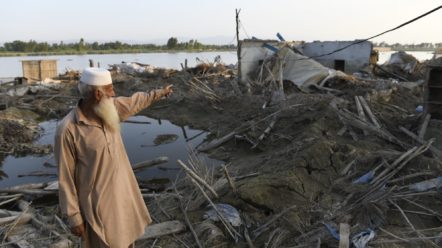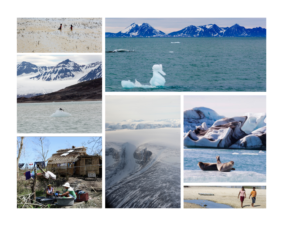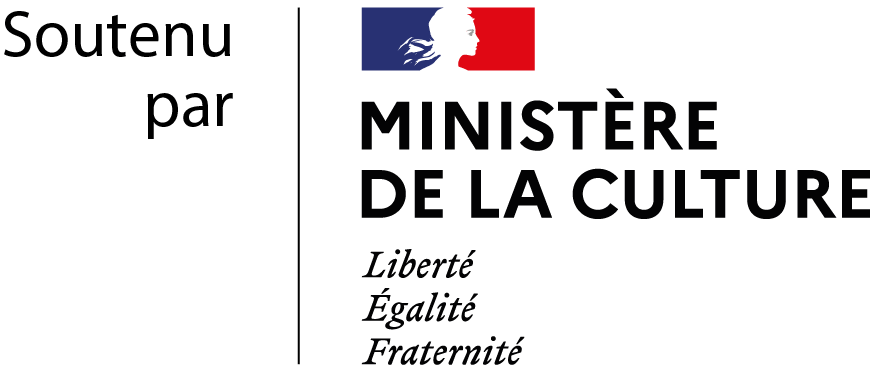« We open the doors of our companies to refugees. »
On February 1, the Paris Chamber of Commerce and Industry hosted the « Salon for the professional integration of refugees.» The Tent Foundation brought together some thirty major companies committed to reducing the obstacles to hiring refugees, who are often far removed from the job market.
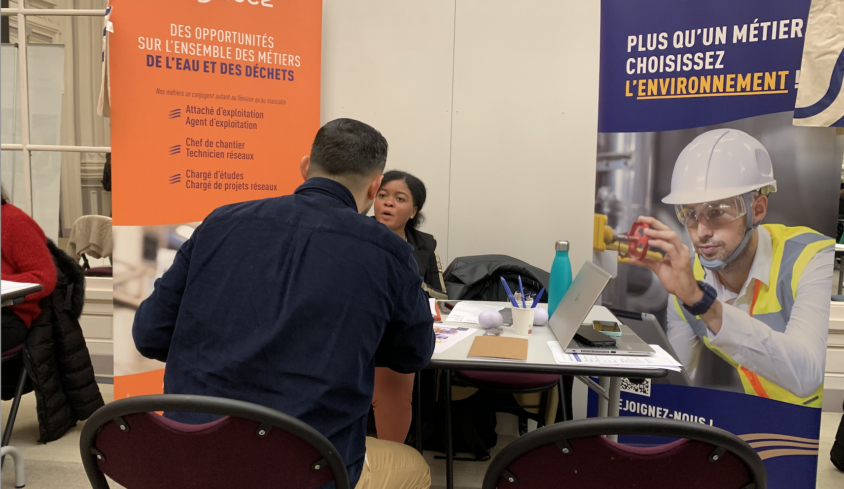
« I am a multi-skilled mechanic » says Mamadi, presenting his resume to the Suez recruitment officer. Odile Bakolea was interested in his application. She is looking for technical profiles to work in maintenance at the group’s household waste treatment plants in the Ile-de-France region. « I would like to call you back to talk about your knowledge and experience. Here’s my number, you can call me », she adds. Mamadi seems surprised that an interview is on the horizon. A refugee in France, this young Guinean has been actively looking for work for 2 years, without success. On the neighboring stand, occupied by one of the leading temporary employment agencies, Randstad, an equally warm welcome is extended to Iryna. She’s applying for a job in digital marketing. She is learning French, speaks English and Ukrainian, her mother tongue. « Your profile fits exactly with what we’re looking for during the Olympic Games in Paris. And then, we’ll work on stabilizing you with other missions » announces Jennifer Frugier, one of the recruiters. « This job fair is a great opportunity for me » confides the candidate, after a long sigh of relief. In France, the unemployment rate for people with refugee status is 34%, according to the government’s Elipa 2 study, compared with 7% for the rest of the population. The tone of the show is set: every CV submitted will be carefully examined by the companies present. If a profile matches a job vacancy at one of Tent France’s members, the candidate who has been granted refugee status or international protection can be accompanied towards employment, through training and mentoring.
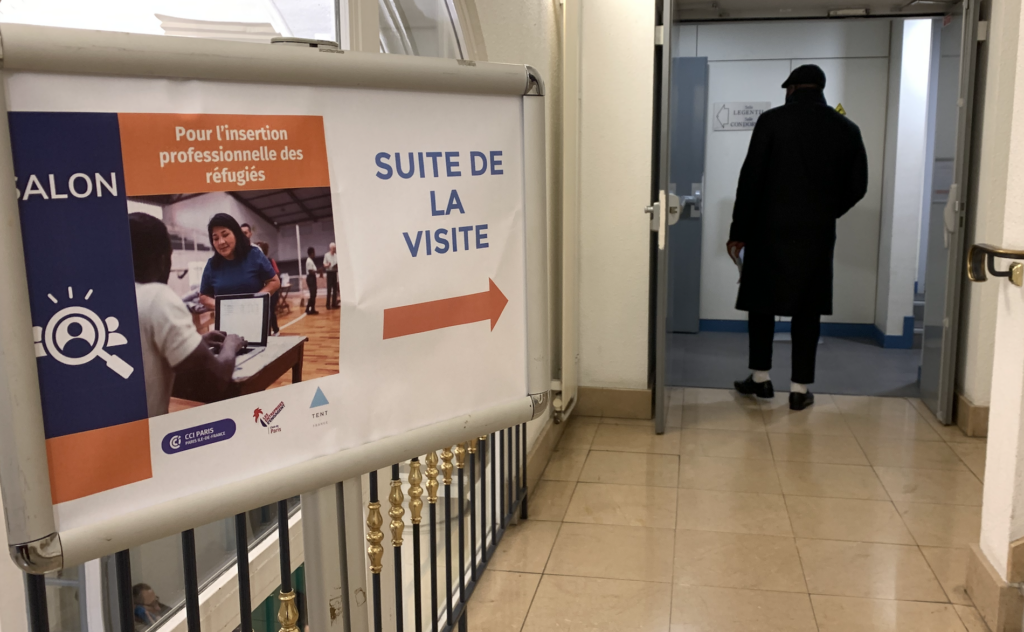
« Putting people before profits » is the philosophy of Tent founder Hamdi Ulukaya. Arriving in the United States at the age of 22 with $3,000 in his pocket, this Turkish immigrant of Kurdish origin became a billionaire by founding the Chobani brand of Greek yoghurts. Throughout the development of his empire, the entrepreneur has hired and supported the integration of refugee employees. He claims to have seen the impact these employees have had on his upstate New York factory, and on the surrounding community. In 2016, he founded Tent Partnership for Refugees and convinced several American business leaders to join him in promoting the hiring and integration of refugees. When he decided to establish his foundation on French soil, he called on the former Minister for Women’s Rights and Education, Najat Vallaud Belkacem. She joined the foundation’s strategic council and mobilized several private sector companies to take on refugees living in France. Ipsos, Sodexo, L’Oréal and the Accor group answered the call and formed the first core of Tent France. BNP, Suez and Sodexo will follow. « Refugees are taking doors from companies: we’re here to open them! » says Yasmine Leroux, Director of Tent France.
How do you welcome a refugee into your team?
Once they have been convinced, the companies involved in the collective are made aware of the need for inclusive hiring of refugees. The Tent Foundation team begins by analyzing the reluctance that may arise among its partners. “The most common obstacle is to consider that a refugee is an undocumented person, and that the company would be acting illegally if it employed him or her. We explain to them that a refugee has a residence permit which allows him or her to work. Tent goes on to explain that this kind of hiring requires adaptation. This means knowing the difficulties inherent in the exile and integration process. For these workers to be mobilized, they must first have a roof over their heads. « We put them in touch with our associative partners, such as France Terre d’asile and Kodiko, who can support candidates in all administrative and social aspects » explains Yasmine Leroux. Once the question of accommodation has been settled, the refugees face three major difficulties: the language barrier, the lack of reference points and the equivalence of diplomas. « Teams need time to integrate. If there’s real commitment and motivation, they’ll do the right thing! » adds Yasmine Leroux.
Tongue barrier quickly lifted
At the recruiters’ table, appointments follow one another like speed dating. Uddin, a Bangladeshi who arrived in France a year ago, struggles to speak to the Randstad recruiter. His brother accompanies him and translates for him. « As long as they can understand safety instructions, it’s okay with us » explains Jennifer Frugier, who offers Uddin a meeting at a later date. Ganna sits down shyly in front of the recruiter. She’s looking for a job in sales, but quickly turns to Ilya, a fellow Ukrainian, to translate her interview. The thirty-something is a florist. She has just had three negative professional experiences. Several jobs in cold storage, in basements and underpaid. She’d like to change fields. Here again, the language barrier is quickly overcome to focus on the candidate’s skills and experience.
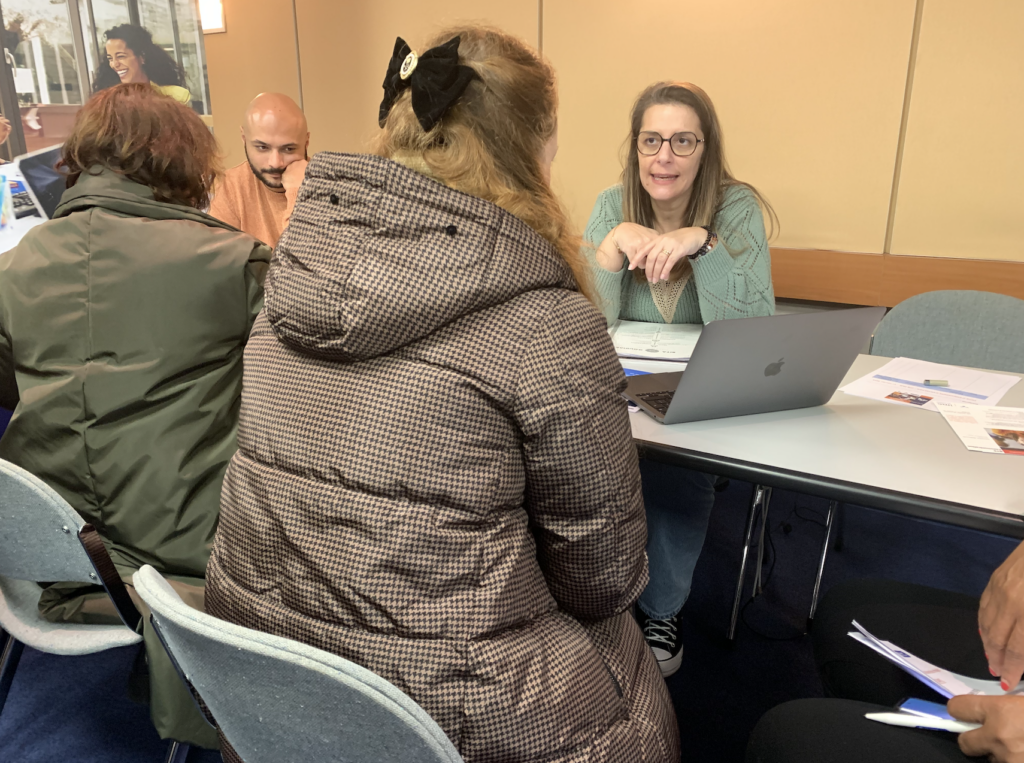
Changing jobs and starting from scratch
Ilya takes his turn at the Suez stand. A lawyer by trade in the Ukraine, he prefers to show off his new Data analyst and IT technician hats to the recruitment team. It doesn’t matter if he’s no longer practicing his profession. Pragmatic, he just wants to find work quickly. Even if he doesn’t yet have any professional experience in these fields, he feels that his retraining will help him gain quicker access to the job market. « You’re versatile, and I’ve got colleagues who’ll be looking in that area. And if it’s not Suez, I can refer you to one of our partners in the Tent collective » explains the recruiter. According to an IFRI* study on refugee employment, two out of every five refugees in employment feel they are overqualified. This study, published in 2022, is one of the few to document the phenomenon of refugee downgrading. Comparing the employment of refugees in their country of origin and in France, the number of blue-collar workers rises from 22% to 46%, and white-collar workers from 18% to 42%. The number of executives and higher intellectual professions dropped from 10% to 2%. And yet, an estimated 40% of refugees have a baccalaureate or higher. Another major obstacle is that, according to a study by the Observatoire des inégalités, an estimated 5.4 million jobs are closed to non-European foreigners. Added to this is the time-consuming process of recognizing foreign qualifications for medical and legal professionals. At the Tent trade show, companies are taking a stand against this professional downgrading. They are also combating the proliferation of misconceptions about migration.
« I like to make them feel welcome »
Ana de Boa Esperança, Director of Social Innovation at Randstad
At the Randstad stand, Ana de Boa Esperança’s welcoming smile reassures candidates who are timidly approaching career opportunities. She is the company’s Director of Social Innovation: « I like them to feel welcome. Sometimes these people can feel stigmatized. It’s important to deconstruct stereotypes by demonstrating that employing refugees works, that these people are levers of economic development for our companies. As a partner of the Olympic Games, the company is currently ramping up its recruitment activities, with 100 days to go before the event. Around a hundred job offers are on the table in the construction, hotel/restaurant, events, marketing and sales sectors. « In a period of labor shortage, immigration is a breeding ground. Companies have an essential role to play in helping them find employment in France » adds Ana de Boa Esperança.
Training courses to deconstruct prejudices about migration
For an inclusive society and a sustainable world, the Tent collective believes it’s time to deconstruct stereotypes about refugees. Within the collective’s partner companies, things are changing in concrete ways. At Randstad, anti-stereotype training courses are offered to employees to deconstruct preconceived ideas about migration. The courses focus on « the contribution of refugees to the workplace. » Randstad trains its own teams, but is soon planning to offer this type of training to recruiting companies who turn to this human resources giant. « We show them role models » adds the interim group’s Director of Social Innovation.
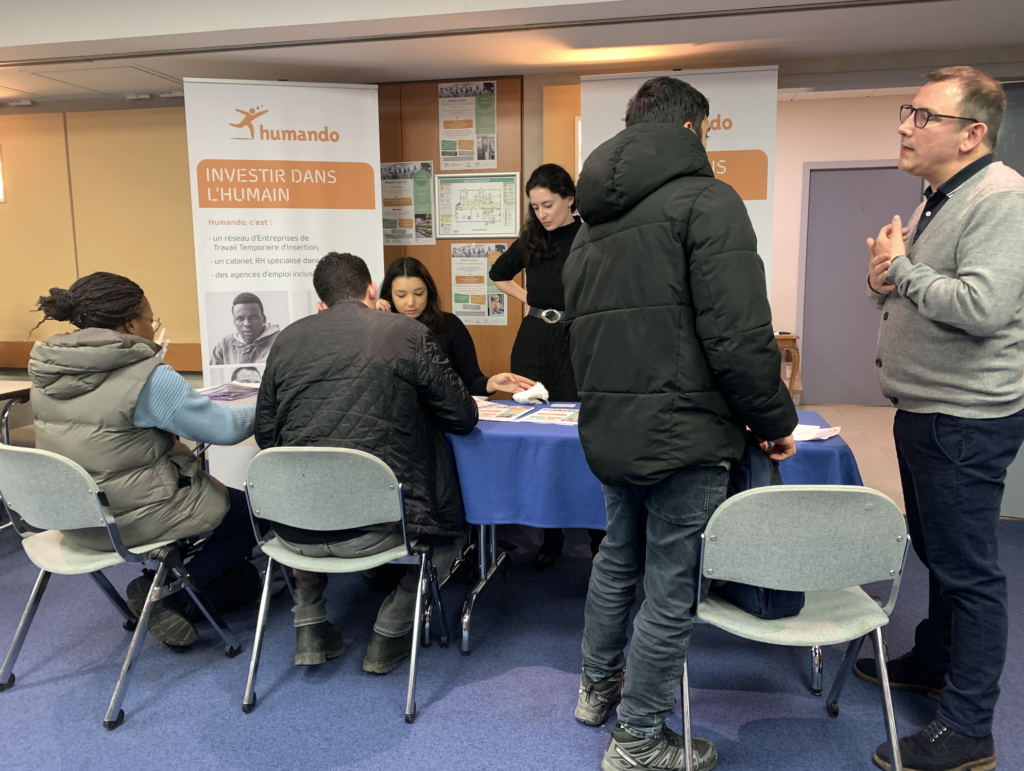
At Humando, an inclusive temporary employment company, Damien Filluzeau notes that « it reassures companies to be supported by people who know the reality of refugees. It makes all the difference. He himself confesses to having had some “biases” and misgivings about working with refugees. « I really hesitated », he adds. His doubts soon gave way to a total commitment to « these people who have traveled halfway around the world to get by. We’re here to open doors, even though negative perceptions are still very strong. »
In June 2023, Tent organized a European summit at which over 40 companies pledged to offer employment or training to over 250,000 refugees in Europe. Businessman and philanthropist Hamdi Ulukaya intends to change the global game by offering companies a solution to act on behalf of their economic needs in alignment with their social responsibility.
IFRI: French Institute of International Relations
